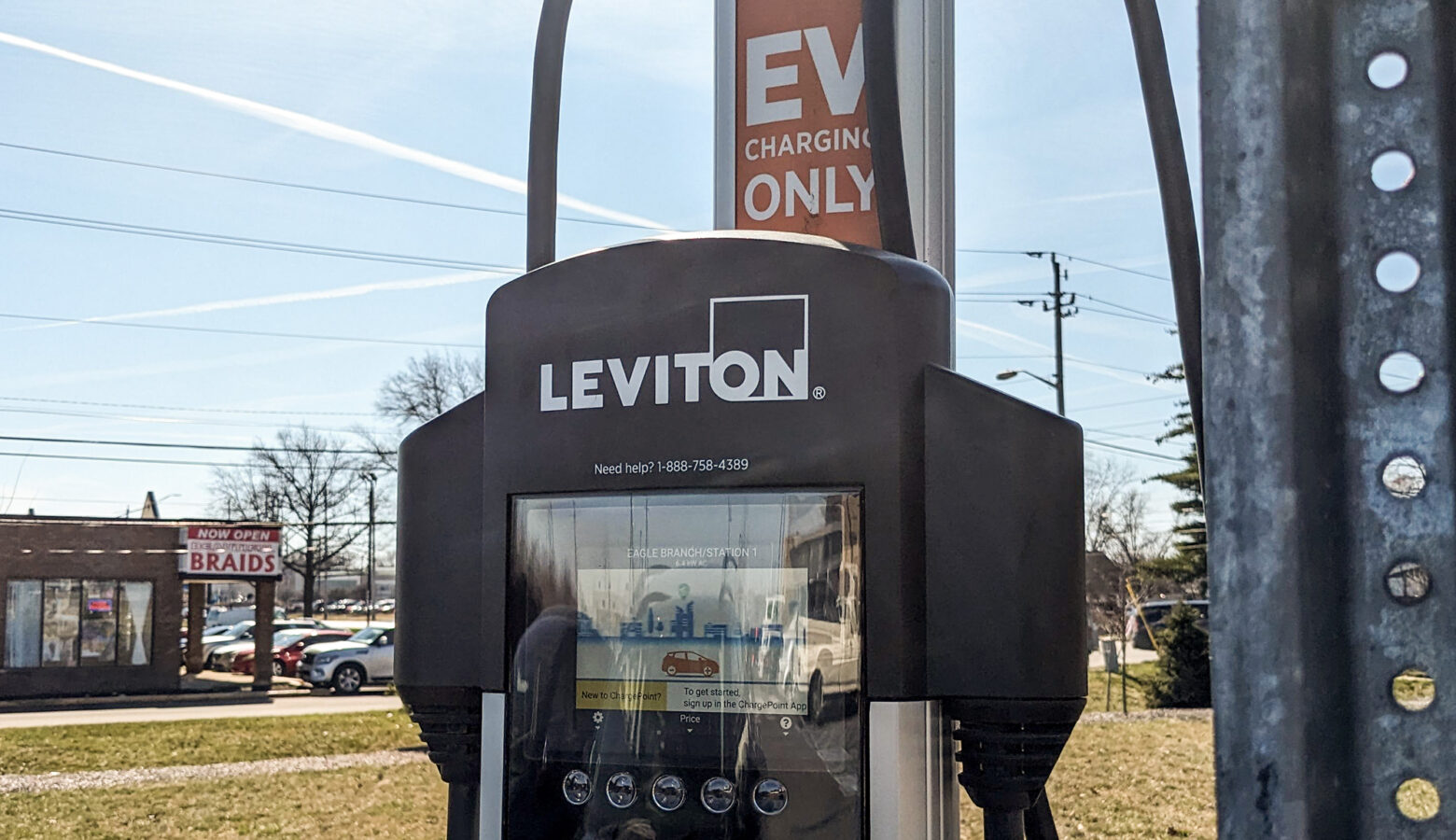INDOT chooses first round of federally funded EV chargers, majority of bids go to big corporations

Indiana has chosen locations for its first round of electric vehicle chargers through a federal highway charging program. The goal is to lessen the fear of running out of power on the road — something that can keep people from adopting EVs. And 40 percent of the benefits of the program are supposed to go to disadvantaged communities. But an equity group said the state isn’t putting in the effort to make sure that happens.
Most of the 39 chargers will be placed at combination gas station/truck stops or hotel chains. And the majority of the bids went to big corporations like BP, Pilot and Tesla.
But it didn’t have to be this way. Members of an Indiana equity alliance said the Indiana Department of Transportation could work harder to involve the Black and Brown communities most affected by vehicle pollution.
The Rev. David Greene Sr. is the president of Concerned Clergy of Indianapolis. He said INDOT mostly chose locations that already had infrastructure in place. That makes things easier for installers, but also often leaves out communities that could benefit from an economic boost.
“We don’t have the same power grid. We don’t have the same internet. It’s not the same — that’s why it’s most likely disadvantaged,” Green said.
But the National Electric Vehicle Infrastructure program’s definition of “disadvantaged” doesn’t have to mean diverse. It includes factors like income, transportation access and sparsely populated rural communities.
READ MORE: Indiana is adding electric vehicle charging stations, but makes EV owners pay a fee. Why?
Join the conversation and sign up for the Indiana Two-Way. Text “Indiana” to 765-275-1120. Your comments and questions in response to our weekly text help us find the answers you need on climate solutions and climate change at ipbs.org/climatequestions.
Natalie Garrett is the strategic communications director for INDOT. She said one of the federal requirements for the charging locations is that drivers have to be able to get to them at any time.
“So, you know, hotel parking lot, gas stations, those are accessible 24 hours a day. There’s generally traffic in and out at all times. So I think that’s definitely a factor,” Garrett said.
Garrett said no minority-, woman- or veteran-owned businesses applied. She said INDOT expects to do another round of bids for chargers this fall. Ohio’s first EV charging station through the federal program is already up and running and Kentucky’s is under construction.
Still, Indiana is likely slightly ahead of many other states. As of December, more than half of all U.S. states hadn’t yet put out requests for bids.
Rebecca is our energy and environment reporter. Contact her at rthiele@iu.edu or follow her on Twitter at @beckythiele.
